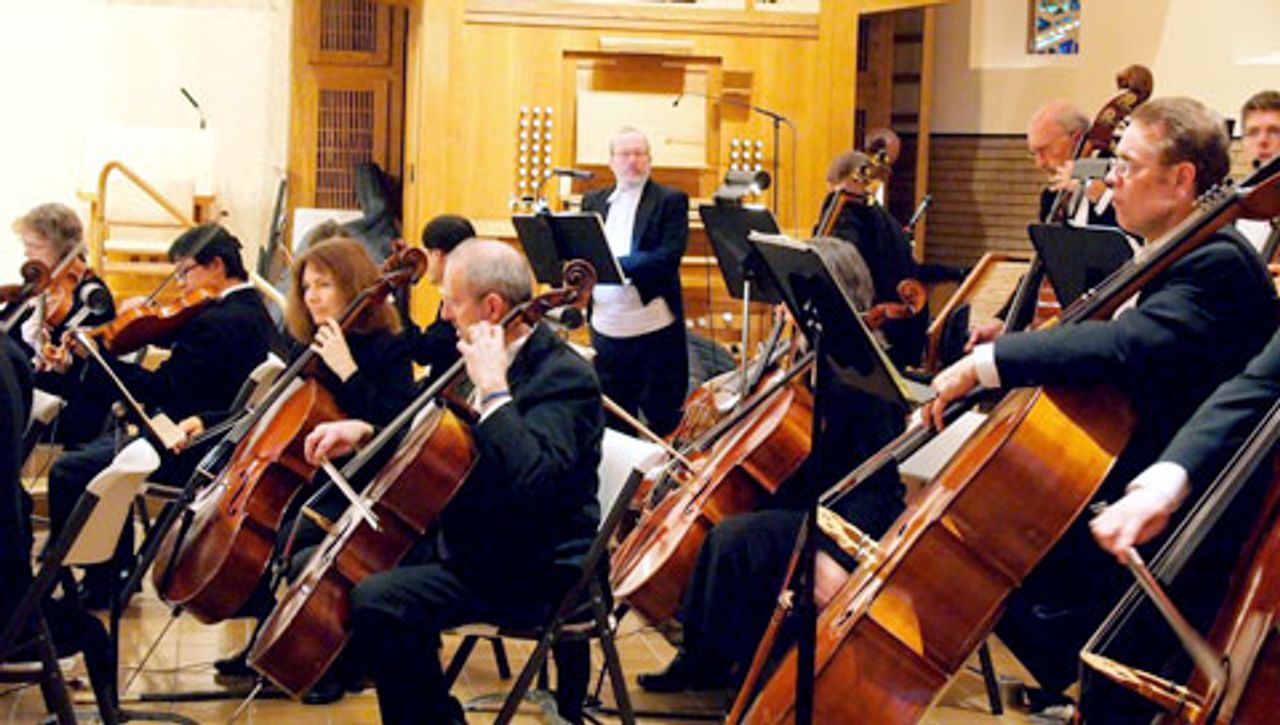 DSO musicians in concert March 20 at Our Lady Star of the Sea Catholic Church
DSO musicians in concert March 20 at Our Lady Star of the Sea Catholic ChurchThe strike by musicians of the Detroit Symphony Orchestra is entering its 25th week with no negotiations scheduled following the rejection by management earlier this month of a proposal by the musicians’ union to submit outstanding issues to binding arbitration.
Management’s intransigent stand now puts in jeopardy the 2011 summer concerts. Last month, DSO officials cancelled the balance of scheduled winter and spring concerts. The DSO still has concerts scheduled for the July 4 weekend at Greenfield Village as well as its traditional appearances at the Meadowbrook Music Festival. Also currently on the books are performances at the Edsel and Eleanor Ford House.
Musicians struck on October 4 against management demands for massive concessions, including a more than 30 percent cut in pay, 42 percent for new musicians. The musicians’ union has responded by offering deeper and deeper concessions. However, musicians have so far refused to go along with management’s demand for a fundamental restructuring of the orchestra. Management proposals would turn the DSO into essentially a part-time ensemble, with musicians forced to perform all kinds of other concert performance duties at the beck and call of management.
DSO management shows no interest in resuming talks. In remarks to the press, one top DSO official indicated the orchestra might try to go forward with replacement musicians.
The reckless and provocative actions by management are taking a terrible toll on the orchestra. Many musicians have had to take temporary work outside of the Detroit Metropolitan area, and some have taken other jobs. The most recent loss is Phillip Dikeman, assistant principal flute of the DSO since 1992 and acting principal flute since 2010. He is leaving the DSO to take a teaching position at Vanderbilt University.
In an interview posted on the DSO musicians’ website, Dikeman expressed his sadness at leaving, “For almost two decades, I have had the pleasure of working with the many amazing and inspiring musicians who make up the Detroit Symphony Orchestra. Performing with an orchestra of the caliber of the DSO has been an extreme privilege and I am grateful I could be a part of something so special these past 19 years.”
A March 18 posting on the DSO musicians’ website illustrates the powerful corporate interests behind the drive to restructure and downsize the DSO, diagramming the relations between the banks, major foundations and DSO officials. It outlines as well the role of the right-wing League of American Orchestras.
Top figures on the DSO board have connections to major foundations supporting the DSO as well as banks holding debt on the orchestra’s Max M. Fisher Music Center. According to the musicians, “Foundations appear to have bought into management’s plan to redefine the Detroit Symphony Orchestra well in advance of negotiations. It also appears as if, in some cases, funding has been withheld until the musicians agree to management’s plans to reshape the orchestra. Again, we have been told that ‘purse strings’ will open once the orchestra is back on stage.”
Two high-level DSO officials sit on the boards of directors of major banks that hold debt on the Fisher—Peter Cummings, DSO chairman emeritus, who sits on both the board of directors of Comerica Bank, and James Nicholson, also DSO chairman emeritus, who sits on the board of directors of Bank of America. Cummings has been a generous donor to the LAO’s “Campaign for a New Direction.” The restructuring that the DSO is attempting to impose is based on the LAO “vision.”
DSO President and CEO Anne Parsons is a member of the board of directors of the LAO and also has developed relationships with three major foundations with ties to the orchestra. According to the musicians, at least one foundation prior to the strike expressly agreed to withhold funding until management imposed its “solution” onto musicians.
Meanwhile, DSO executives continue to draw full salaries with no orchestra to manage; in the case of Parsons, $400,000 annually.
DSO musicians are continuing their efforts to win public support with a series of community concerts throughout the month of March. On March 20, DSO musicians held a well-attended support concert at Our Lady Star of the Sea Catholic Church in the Detroit suburb of Grosse Pointe Woods. The concert featured all works of Beethoven, including the Coriolanus Overture, Piano Concerto No. 4 in G Major and Symphony No. 7 in A Major.
Kenneth Kiesler, director of orchestras at the University of Michigan, was guest conductor. The internationally acclaimed pianist Barbara Nissman performed the Beethoven piano concerto. Among her many accomplishments, Nissman was the first pianist to perform the complete piano sonatas of Russian composer Serge Prokofiev, a feat she accomplished in a series of recitals in Paris and London in 1989. Nissman has contributed many articles to music publications and also initiated a music lecture series, “Barbara and Friends,” based on the series she did for BBC television.
All musicians, stagehands and guest artists donated their time and talents.
A March 27 concert in the far-northern Detroit suburb of White Lake will feature DSO Principal French Hornist Karl Pituch in a performance of Mozart’s Horn Concerto No 2 in E flat Major.
The WSWS spoke to several of those attending the March 20 support concert. Many expressed anger at the links between the banks and DSO management. A member of the community support group Save Our Symphony said Peter Cummings, head of the DSO, “is on the board of directors of Comerica Bank and he takes out an interest-only loan to build the Max Fisher Music Center. It stinks to heaven.”
Another supporter of the musicians declared, “The banks have done the whole US such an injustice. We are heading toward calamity. What is happening is a real tragedy for the community.”
